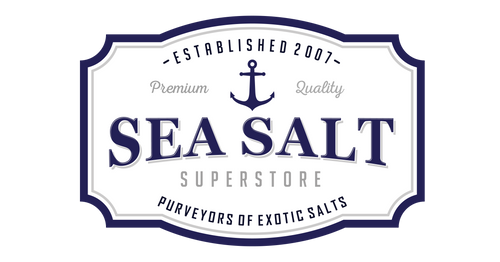Salt, or sodium chloride, is a common seasoning in many diets worldwide. It is essential for various body functions, including fluid balance, nerve transmission, and muscle contraction. However, consuming too much salt can have a significant impact on health, particularly in relation to blood pressure. High blood pressure, or hypertension, is a serious condition that can increase the risk of heart disease, stroke, kidney disease, and other health complications. Understanding how salt affects blood pressure is crucial for managing and reducing the risk of hypertension.
The Role of Sodium in the Body
Sodium is an essential electrolyte that helps regulate fluid balance in the body. It is involved in controlling the volume of blood and maintaining the proper function of muscles and nerves. The body relies on a delicate balance of sodium and other electrolytes (like potassium) to maintain normal blood pressure. Sodium naturally attracts water, so when you consume excess sodium, it can cause the body to retain more water. This additional water volume increases the amount of fluid in the bloodstream, leading to higher blood pressure.
How Too Much Salt Raises Blood Pressure
When you eat too much salt, your body retains more water to balance out the sodium concentration in the bloodstream. This excess water increases the overall volume of blood circulating through the blood vessels, and as a result, the pressure inside the blood vessels increases. Over time, this additional pressure can strain the heart and arteries, leading to hypertension (high blood pressure).
Excess sodium also affects the function of the blood vessels. In some people, a high-salt diet can make the blood vessels less flexible, which further elevates blood pressure. This is particularly problematic for those who are genetically predisposed to high blood pressure or have existing cardiovascular issues.
The Connection Between Salt and Hypertension
Research has shown a strong link between salt intake and hypertension. According to health organizations like the American Heart Association (AHA), people who consume large amounts of sodium are more likely to develop high blood pressure. Even individuals who don’t initially have high blood pressure can experience a rise in blood pressure when they consume too much salt.
Sensitivity to Salt: Not everyone is equally affected by salt. Some individuals are considered "salt-sensitive," meaning their blood pressure increases more significantly in response to salt intake. Those with a family history of hypertension, African Americans, and older adults tend to be more salt-sensitive.
The Recommended Sodium Intake: The average American diet is high in salt, often exceeding the recommended limit of 2,300 milligrams of sodium per day, which is about one teaspoon of salt. For people with high blood pressure or other risk factors, the ideal amount is even lower, around 1,500 milligrams per day. Reducing salt intake can significantly help lower blood pressure in sensitive individuals.
Health Risks of High Blood Pressure
Chronic high blood pressure can lead to serious health problems. Over time, the extra pressure on the arteries can cause them to become stiff and narrow, increasing the risk of heart disease, stroke, and kidney disease. Uncontrolled high blood pressure can also lead to heart failure, where the heart struggles to pump blood effectively, and vision problems, due to damage to the blood vessels in the eyes.
High blood pressure is often called the “silent killer” because it typically has no noticeable symptoms until it causes severe health problems. This is why it’s important to monitor blood pressure regularly and manage sodium intake to prevent the development of hypertension.
The Benefits of Reducing Salt Intake
Reducing salt intake has been proven to help lower blood pressure. A study by the World Health Organization (WHO) found that cutting salt intake by just 1 gram per day could reduce the risk of stroke by 23% and heart disease by 17%. Even a small reduction in salt intake can make a significant difference in blood pressure levels and overall cardiovascular health.
For people with high blood pressure, decreasing salt consumption is one of the most effective lifestyle changes to help control the condition. In addition to lowering blood pressure, reducing salt can also help reduce the need for medication and decrease the risk of related complications.
Ways to Reduce Salt Intake
-
Read Nutrition Labels: Many processed foods contain hidden sodium. By reading nutrition labels, you can choose lower-sodium options and be more mindful of your salt intake.
-
Cook Fresh Foods: Preparing meals from scratch using fresh ingredients allows you to control the amount of salt added to your dishes.
-
Use Salt Substitutes: If you’re trying to reduce your salt intake, consider using herbs, spices, and salt-free seasoning blends to flavor your food.
-
Limit Processed Foods: Canned soups, salty snacks, frozen meals, and fast food are often loaded with sodium. Reducing the consumption of these foods can significantly lower your salt intake.
-
Increase Potassium Intake: Foods high in potassium, like bananas, spinach, and sweet potatoes, can help balance the effects of sodium and may aid in lowering blood pressure.
Conclusion
Salt plays a significant role in regulating blood pressure, but too much of it can have serious consequences for heart and vascular health. Excess sodium can lead to water retention, increased blood volume, and higher blood pressure, contributing to the development of hypertension. While sodium is essential for bodily function, it’s important to monitor your intake and reduce excess consumption to maintain optimal blood pressure levels. By making conscious dietary choices, like cooking with fresh ingredients, reducing processed food, and using salt substitutes, you can manage your sodium intake and reduce the risks associated with high blood pressure.




